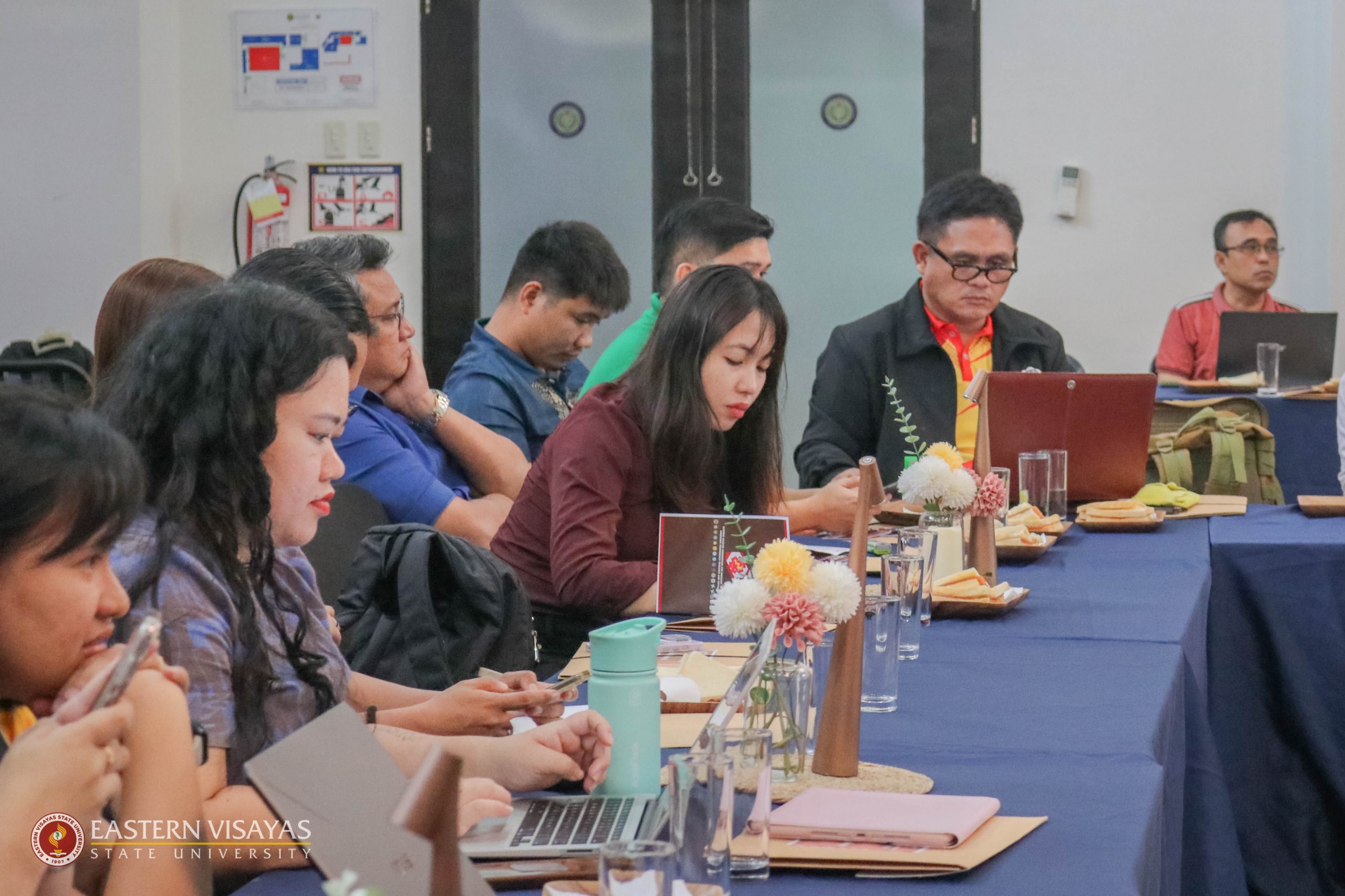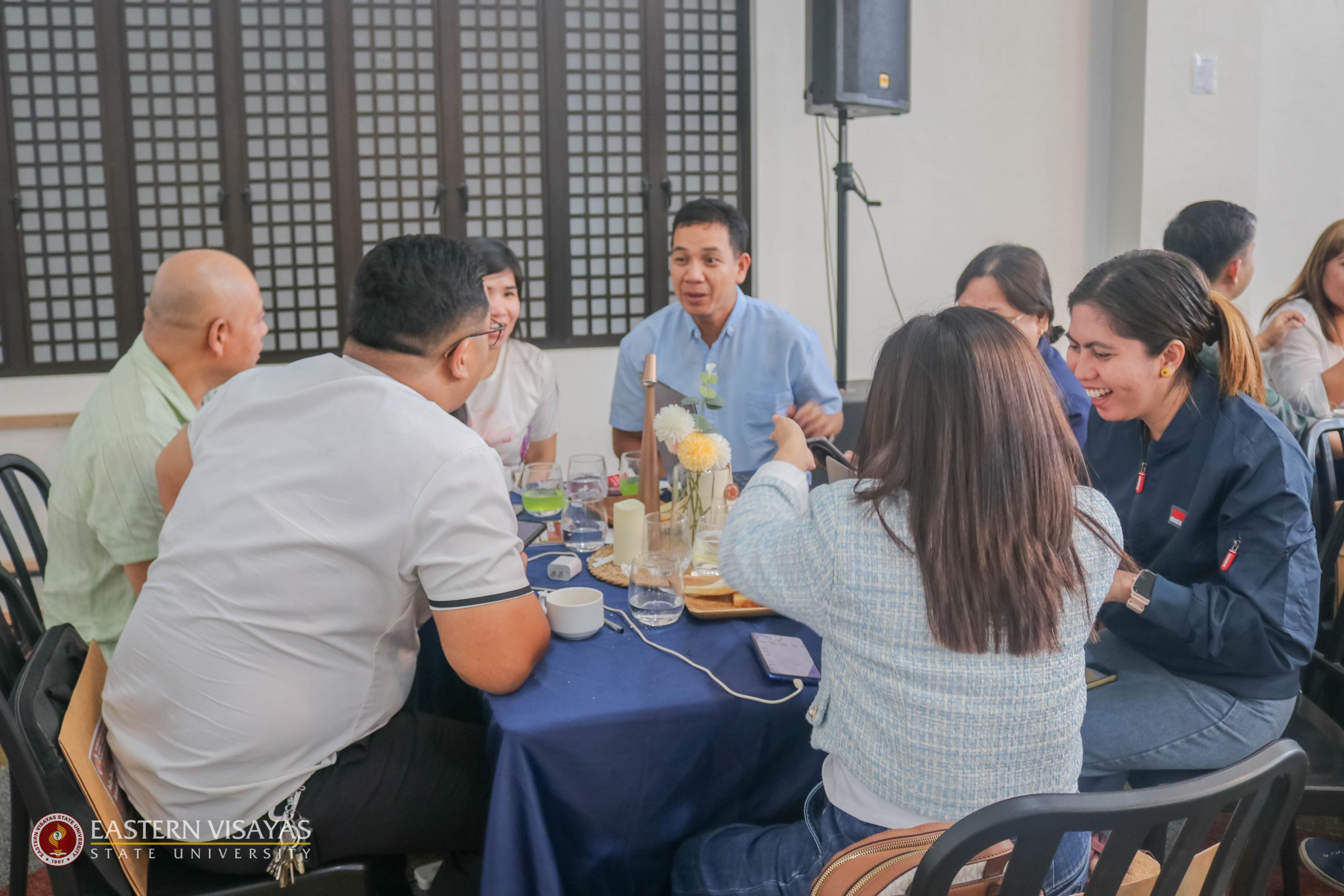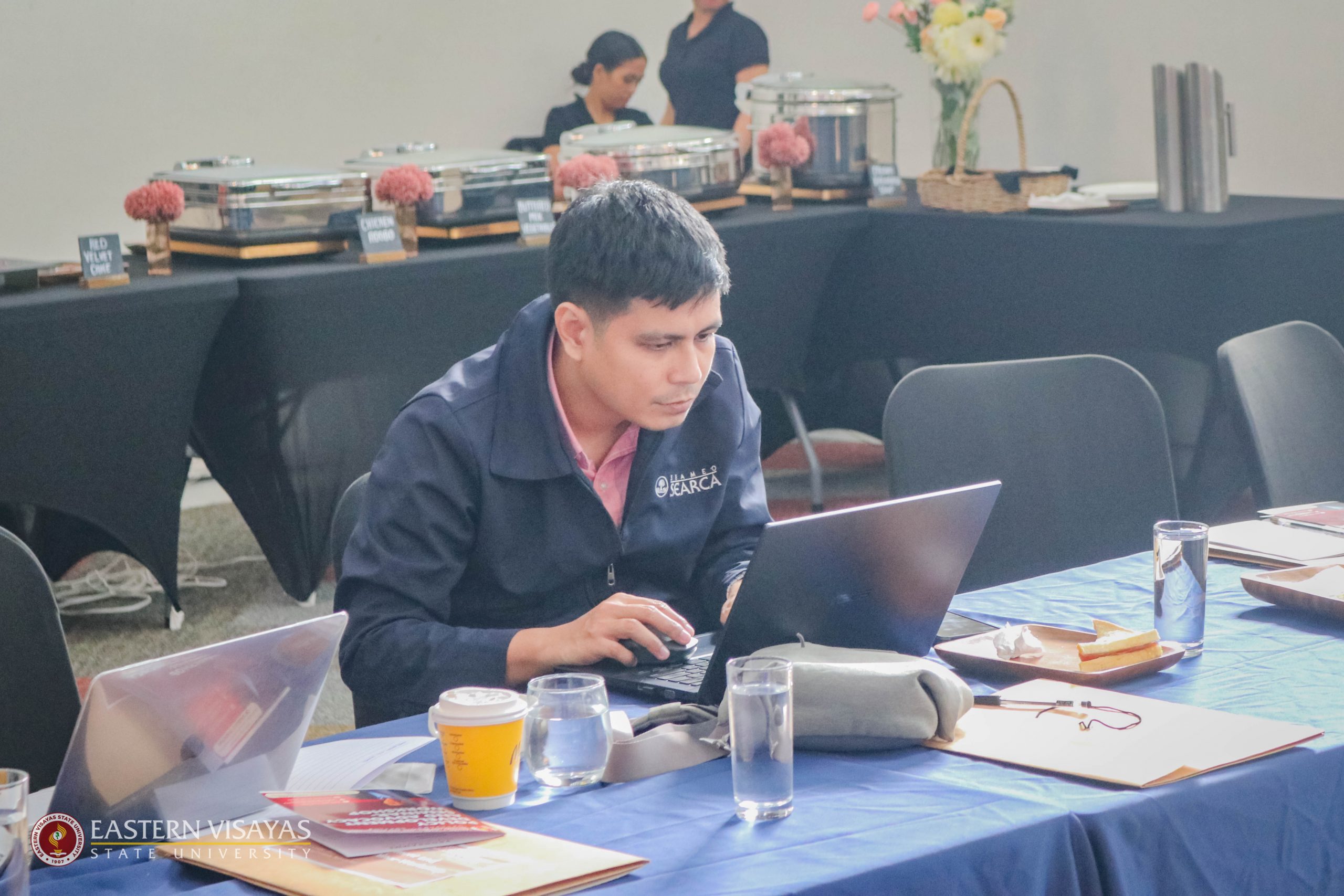The Eastern Visayas Consortium for Industry, Energy, and Emerging Technology Research and Development (EVCIEERD) conducted a two-day Policy Development and Advocacy Workshop-Seminar at Leyte Normal University on October 14-15, 2025.
Dr. Ruperto Sangalang, former CHED Commissioner, served as the Resource Speaker and discussed profoundly the status of the universities in the region, its potential role in addressing the current issues, and trajectory of the academic institutions in the next 25 years.
The topic on the first day of the workshop seminar dealt with the pressing issues in the region which include poverty, health, inequality, climate disaster preparedness, and energy. These factors decelerate progress and impede sustainable development. Nonetheless, Dr. Sangalang emphasized that universities exist to help solve these perennial problems. These include planning for the future where our region can possibly become ASEAN Green Tech hub. Meanwhile, universities may utilize sophisticated technology and strengthen intercultural collaboration. In addition, campuses may be avenues for research laboratories for climate and technology, and professors may become trainers and designers, not just lecturers.
The second day of the workshop seminar continued with a Backcasting activity where each university reflected on a desired future in mind. They thought of working backward to identify the steps required to achieve the desired goal. These include defining the vision, understanding current state, identifying gaps, brainstorming possible pathways, evaluating and prioritizing actions, developing an action plan, and monitoring and adjusting by using KPIs to monitor achievements like global ranking, research publication, an international student enrolment, among others.
Select universities presented their future-ready initiatives, which inspired promising and revitalized developments among institutions in the region. They highlighted empowered research centers, smart classrooms, and innovations designed to address challenges brought about by natural disasters.
The seminar-workshop aimed to strengthen the capability of researchers and research managers in Eastern Visayas in translating research into policies that influence programs, governance, and innovation. By equipping participants with the skills in policy brief writing, advocacy, and stakeholder engagement, the consortia will help bridge the gap between academic research and real-world impact.
In attendance were the State Colleges and Universities (SUCs) in the region—University of Eastern Philippines, Northwest Samar State University, Samar State University, Southern Leyte State University, Visayas State University, Palompon Institute of Technology, Eastern Visayas State University, Leyte Normal University, Eastern Samar State University (online attendance), Higher Education Institution (HEI)—Ama Computer Learning Center College—Tacloban Campus, and partner agencies—CHED Regional Office VIII, and TESDA VIII. Also present were some of the Technical Working Group members – Prof. Eugene Calumba of NwSSU, Dr. Jonas Villas of LNU, and Dr. Danilo Pulma, the TWG Chairperson.
In his closing remarks, Dr. Pulma highlighted the pivotal role of EVCIEERD and the consortium in shaping the sustainable futures of the region and in strengthening science-oriented initiatives that will foster progress and drive innovation.
via J Genobiagon | UMDC










